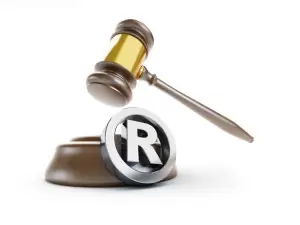 Managing intellectual property is a complicated subject, and one that the general public often has a lot of questions about. Questions like, can you patent an idea? Is my copyright valid in other countries? Why was my trademark application rejected? In case you’re wondering, the answers are: usually no, not always, and that depends. As we said, it’s complicated.
Managing intellectual property is a complicated subject, and one that the general public often has a lot of questions about. Questions like, can you patent an idea? Is my copyright valid in other countries? Why was my trademark application rejected? In case you’re wondering, the answers are: usually no, not always, and that depends. As we said, it’s complicated.
When Managing Intellectual Property Goes Wrong: Trademark Refusal
A London coffee chain has pulled off a neat little feat of guerrilla marketing after posting its trademark refusal from the U.K. Intellectual Property Office online. The coffee chain is called F***offee (but without the asterisks), and the IPO decided the name would be offensive to a “significant portion of the UK public.” According to the IPO rejection letter, proudly posted on the F***offee Twitter account, the name was “absolute grounds for refusal.”
Specifically:
The mark contains the highlight offensive word “f—” prominently positioned at the beginning of the mark. Although the letter “c” from the word “coffee” is missing and the two words are conjoined, the highly offensive word “f—” remains very obvious in the mark.
The mark also sounds phonetically identical to “f— coffee” as there is no other way of breaking up or pronouncing the conjoined words “F—offee” meaning the consumer would immediately see the reference to the highly offensive word “f—.”
Managing intellectual property rights becomes especially complicated when working across borders. Stateside, a major intellectual property rights rejection dominated headlines in 2014. That’s when the Washington Redskins officially had their trademark rejected, retroactively. Because federal intellectual property law holds that trademarks cannot disparage individuals or groups or “bring them into contempt or disrepute,” the team had their trademark cancelled.
In that case, the U.S. Patent and Trademark Office’s ruling was mostly symbolic. According to the Washington Post, “The ruling cannot stop the team from selling T-shirts, beer glasses and license-plate holders with the moniker or keep the team from trying to defend itself against others who try to profit from the logo. And the trademark registrations will remain effective during any appeal process.”
How To Avoid a Rejection When Filing for Intellectual Property Rights
There’s a common saying that possession in nine-tenths of the law. Well, intellectual property laws are just as important, especially in the information age of the 21st century. This year, intellectual property makes up more than half of U.S. exports, driving at least 40% of economic growth. Although there are no guarantees, especially when dealing with the clunky gears of government bureaucracy, hiring intellectual property lawyers can help better prepare you for the patent filing process.
Most small businesses lack the in-house expertise they need to protect their own intellectual property. If you want to avoid making costly mistakes, or need to defend existing intellectual property, then consider hiring a legal representative to help you.
This page should not be read as official legal advice. Only your attorney can provide legal counsel.
